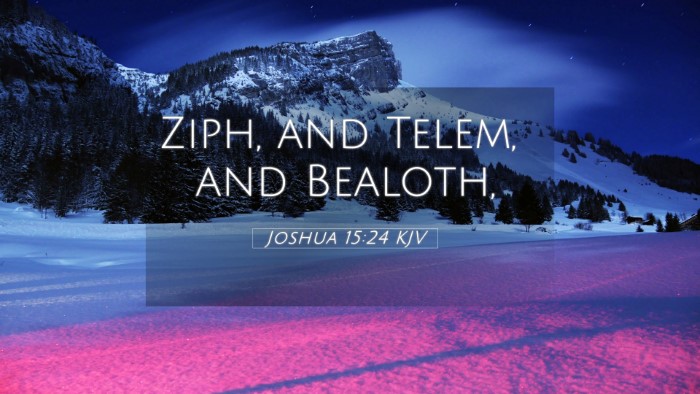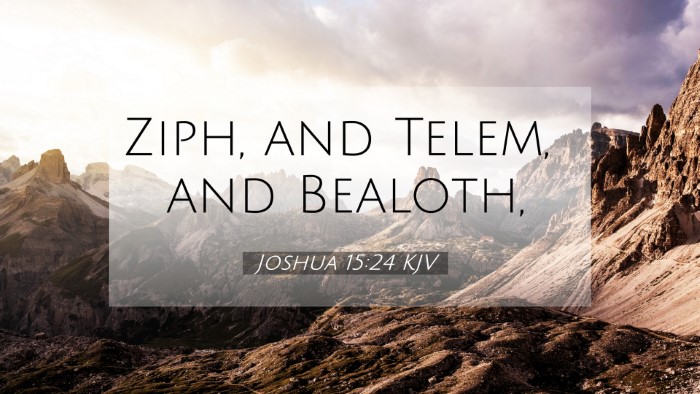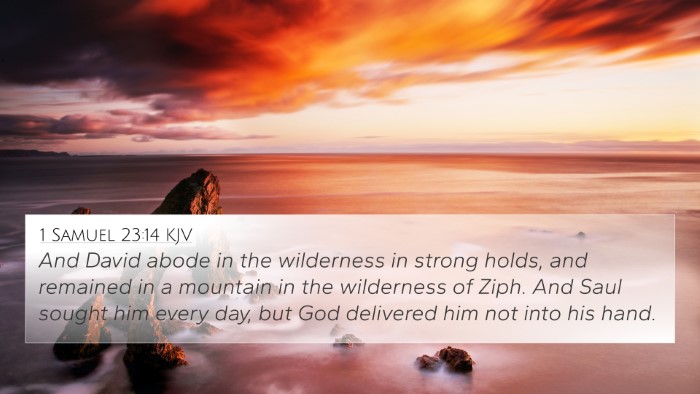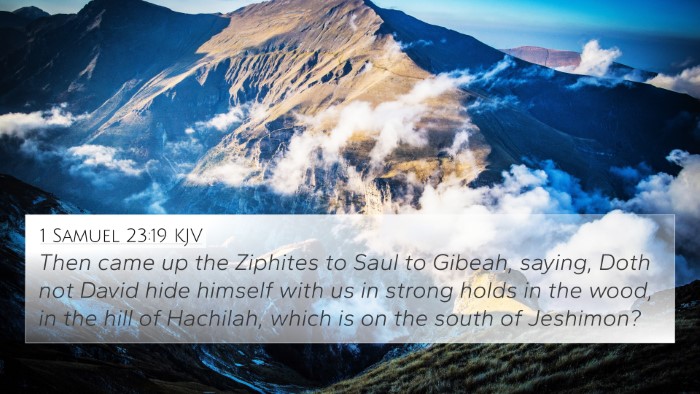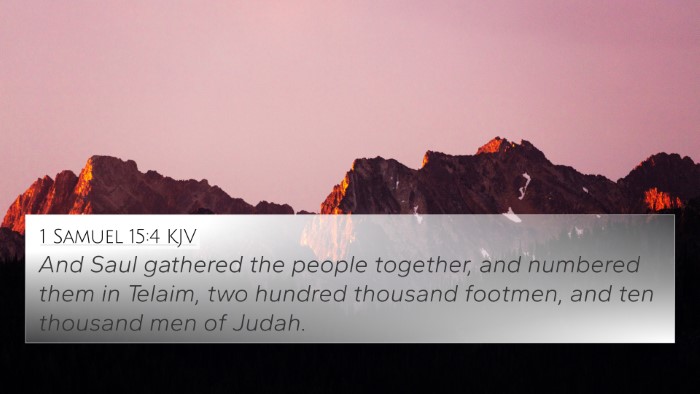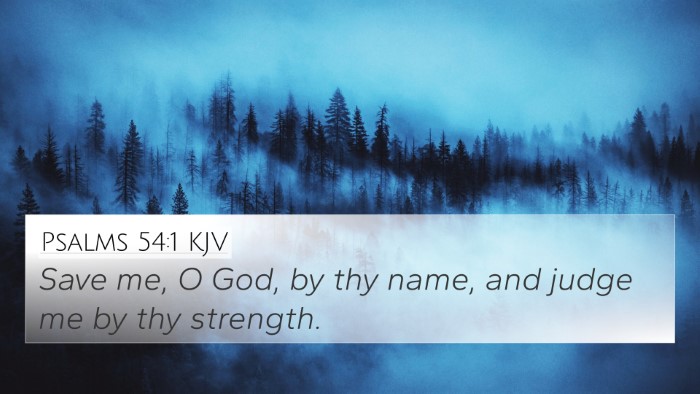Understanding Joshua 15:24
Verse: "And Zif, and Telem, and Ekhaz." - Joshua 15:24
Contextual Background
The Book of Joshua narrates the conquest and partition of the Promised Land among the tribes of Israel. Joshua 15 specifically outlines the territory allotted to the tribe of Judah. The verse in question lists several towns that were part of this allocation.
Verse Meaning and Interpretation
This verse, although it may seem like a simple enumeration of places, holds significant implications for understanding the historical and spiritual context of Israel’s journey.
- Geographical Significance: The towns mentioned, such as Zif, Telem, and Ekhaz, mark the physical boundaries of Judah’s inheritance. They serve as markers of God’s promise and providence to the Israelites.
- Historical Context: Matthew Henry emphasizes the importance of these locations. Each name symbolizes a portion of the heritage given to the tribe of Judah, shedding light on the tribal confederation during a formative period of Israel’s history.
- Spiritual Heritage: Albert Barnes points out that the land promised to Judah was chosen by divine design, reminding readers of the significance of spiritual inheritance and identity in God’s covenant with His people.
- Symbol of Fulfillment: Adam Clarke highlights that the precise mentioning of towns signifies the fulfillment of God's promises, illustrating how God meticulously fulfills His word regarding the land He had promised to Abraham, Isaac, and Jacob.
Thematic Connections
This verse can be linked to several broader themes within the scripture and offers a rich tapestry of inter-Biblical dialogue:
- Covenant Promise: The allocation of land is a reflection of God’s covenant with Israel. See Genesis 15:18 and Exodus 3:8 as foundational texts describing the promise of land.
- Inheritance: The themes of inheritance and possession are echoed in Numbers 34:1-12, which discusses the boundaries of the Promised Land.
- Judah’s Leadership: Judah's preeminence is referenced in Genesis 49:10, predicting the significance of Judah in Israel’s future.
- Faithful Fulfillment: See Joshua 21:43-45 which speaks of God fulfilling His promises by giving land to His people.
- Divine Guidance: The guidance provided in land distribution resonates with Psalm 37:23 where steps of a good man are directed by the Lord.
- Restoration Theme: The allotment also points toward themes of restoration and the eventual return from exile found in Jeremiah 32:44.
- Connection to the New Testament: The significance of Judah can be traced to Revelation 5:5, where Jesus is called the Lion of the tribe of Judah.
Cross-Referencing Biblical Texts
Understanding Joshua 15:24 in the light of cross-referenced verses enhances comprehension of its significance:
- Joshua 14:14 - Discusses Caleb's inheritance in Judah, emphasizing the tribe's historical legacy.
- Matthew 1:2-3 - Links the tribe of Judah to the genealogy of Jesus, highlighting its enduring legacy.
- Hebrews 7:14 - References Jesus’ lineage from Judah, connecting Old Testament fulfillment with New Testament revelation.
- Judges 1:3 - Narrates the cooperation of Judah and Simeon, highlighting community in conquest.
- Micah 5:2 - Prophesies the birth of Jesus in Bethlehem, a city of Judah, affirming the tribe's significance in God's plan.
- Revelation 5:5 - Signifying the Lion of Judah as a symbol of victory within the New Covenant.
- Isaiah 11:10 - Proclaims the root of Jesse (associated with Judah) will stand as a banner for the people.
Practical Applications
For modern readers, Joshua 15:24 invites us to reflect on the themes of promise, identity, and God's faithfulness:
- Covenant Assurance: Recognizing God's faithfulness in fulfilling His promises encourages believers to trust Him for their own inheritances.
- Historical Reflection: Understanding our spiritual heritage can deepen our worship and connection to biblical history.
- Community Focus: Just as the tribes worked together, believers today are called to cooperate in the body of Christ.
Tools and Techniques for Cross-Referencing
Utilizing various tools can enhance a deeper understanding of scriptures. Some recommendations include:
- Bible Concordance: Utilize a concordance to locate verses quickly that relate thematically.
- Bible Cross-Reference Guide: Invest time in cross-referencing to see how scriptures interconnect.
- Bible Reference Resources: Use study Bibles that include cross-reference notes to enrich personal study.
- Online Bible Tools: Leverage digital tools that provide thematic searches to find related verses easily.
Conclusion
Joshua 15:24 is not just an inventory of places; it embodies the faithfulness of God in fulfilling His promises to His people. By examining historical contexts, spiritual implications, and thematic connections with other scriptures, believers can gain profound insights into their faith and the continuity of divine guidance throughout biblical history.

